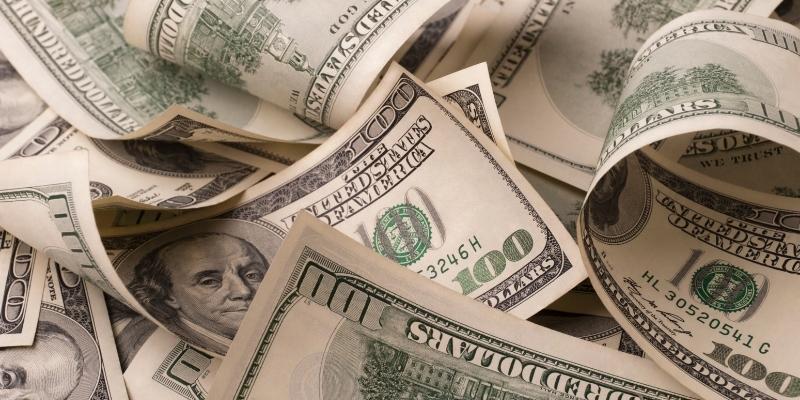What Is Money Supply And How It Affects You
The quantity of coins, banknotes, and other easily exchanged forms of cash in circulation is known as the money supply. Such goods may include bank deposits and other similar financial products. The money supply may be calculated in many ways, with different methods including or excluding certain forms of currency.
Economists may influence the economy's growth or contraction by adjusting interest rates and the quantity of money in circulation. Since the money supply may affect prices, inflation, and the economic cycle, studies of it are conducted publicly and privately.
Money stock is another name for the money supply. Our breakdown of the money supply should help you answer any queries.

Definition Of Money Supply
Simply put, the money supply is the total of a country's currency in circulation plus other liquid assets like checkable bank deposits. It's common for governments or central banks to regulate the creation of new currency in their economies. These organizations boost the economy's liquidity by expanding the money supply.
The Federal Reserve System is the government agency responsible for managing the United States monetary supply. The Federal Reserve ensures that the money supply in the United States economy is managed via various monetary mechanisms.
To regulate the economy's supply of currency, the Federal Reserve primarily employs three methods:
- Open-market operations
- Reserve requirement ratio
- The discount rate
Money Supply And Its Impact On The Economy
It is well known that a rise in the money supply causes interest rates to fall, encouraging investment and putting more cash in the hands of consumers, who are more likely to spend it.
As a result, businesses have increased their orders of raw materials and cranked up production. The rising need for workers is a direct result of the growing economy. However, the opposite may occur if the money supply contracts or its growth rate slows.
Long-term macroeconomic outcomes and business cycles are thought to be significantly influenced by changes in the money supply. The importance of money supply is emphasized in many macroeconomic schools of thought, including Monetarism, Austrian Business Cycle Theory, and Irving Fisher's Quantity Theory of Money.
Inflation and price levels have been demonstrated to have historical correlations with monetary supply measurements. However, after 2000, these correlations have grown unstable, making them less of a solid foundation upon which to base monetary policy decisions.
Despite their continued relevance, measurements of the money supply are only one set of statistics that economists and the Federal Reserve track.
Measuring The Money Supply
The sum of currency in circulation at any moment is known as the money supply. The money supply is a key indicator of economic health; thus, economists keep a close eye on it. Monetary policy decisions are also based on this data by the Federal Reserve's Board of Governors and the Federal Open Market Committee.
Here, we'll discuss a crucial question of this unit: how can we keep track of the money supply? Despite popular belief, economists examine the economy's money supply with great detail. Three methods characterize the monetary base: M1, M2, and M3.
- The smallest measure of the money supply is called M1. Money in circulation, bank deposits, modest savings accounts, and prepaid cards are all included in M1.
- When compared to M1, the scope of M2 is much broader. Money supply (M2) = M1 + money market funds + small time deposits.
- Major time deposits, money market funds, repurchase agreements, and M2's expansive list of financial instruments make up M3, employed mostly by large corporations and government agencies. The Federal Reserve no longer uses M3 as a monetary policy tool, leaving only M1 and M2 in use.
What Relationship Existed Between Inflation And The Money Supply?
By definition, inflation accelerates when a country's money supply expands. Inflation rates tend to fall when the money supply decreases. However, a drastic reduction in the money supply might lead to deflation (prices falling and a rise in the currency's value).
As a country's economy expands and produces more products and services, the money supply inevitably rises to keep up with demand. Inflation results when your money supply expands faster than the economy.
Prices must rise to maintain the same purchase power of more money since the economy isn't generating enough value to maintain the growth in the money supply. The relationship between the money supply and inflation is often calculated using the following formula:
Supply of money multiplied by speed = value of output multiplied by the price
The rate at which one dollar is spent over a year is known as its "velocity." A velocity of five indicates that for every $100 in an economy, there is $500 in spending. To maintain equilibrium, if one of the metrics is altered, one or more of the others must also shift.
Prices will rise, inflation will result if the money supply grows while velocity and production stay the same. If production rises, then increasing the money supply won't have much of an effect on pricing.
To some extent, it is impossible to forecast how a change in the money supply would affect the economy since the equation suggests that variables other than the money supply and production might affect inflation. When spending money is less difficult, spending velocity rises, leading to inflation even if the money supply stays the same.
Conclusion
Money significantly impacts economic activity since it is utilized in almost all economic transactions. The money supply is calculated by adding the amount of checkable or nearly checkable bank deposits to the total amount of money that is currently in circulation.
Central banks, such as the Federal Reserve, utilize the money supply as a key instrument in economic management. Reduced employment, production, and earnings result from a shrinking or slower growth rate in the money supply.










